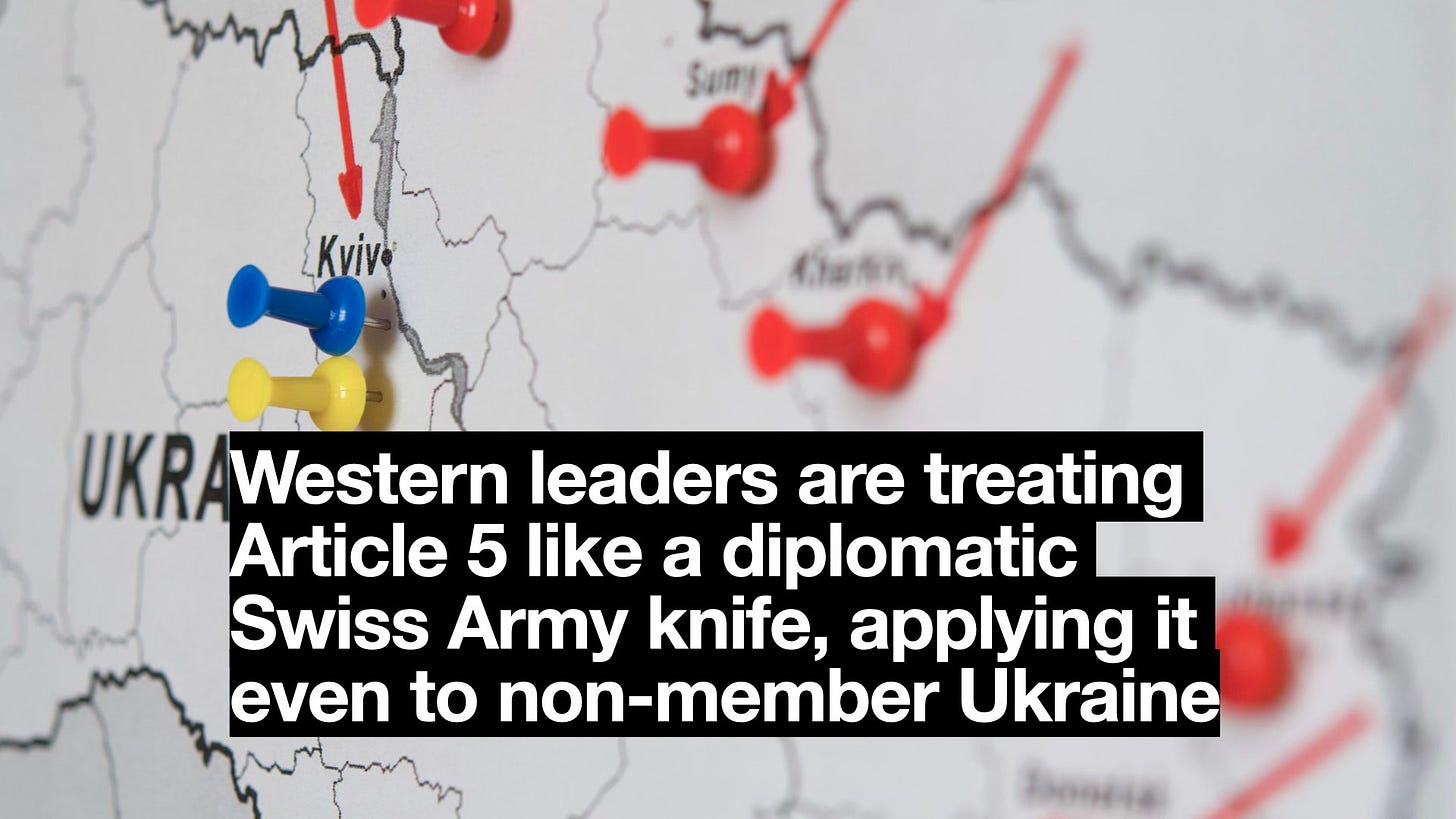The Erosion of Legal Frameworks in the Post-COVID West
As Starmer flirts with military intervention in Ukraine, soldiers — not politicians — will bear the costs of their cavalier approach to international law
The post-pandemic era has witnessed a troubling phenomenon: Western governments' increasingly flexible interpretation of established legal frameworks. This concerning trend has now spilled into the realm of international relations, particularly regarding NATO's response to the Ukraine conflict.
At the heart of this matter lies Article 5 of the North Atlantic Treaty, NATO's cornerstone principle of collective defence. This article, which states that an armed attack against one member state is considered an attack against all members, has been the bedrock of NATO's mutual defence commitment since 1949. However, we're now observing a peculiar diplomatic dance where several Western nations appear to treat Ukraine as if it were protected by Article 5 — despite Ukraine not being a NATO member.
The selective application of international agreements mirrors the arbitrary enforcement of domestic laws that became commonplace during the COVID-19 pandemic. This erosion of legal consistency sets a dangerous precedent, particularly in matters of international security.
Most NATO members have thus far carefully avoided any military engagement that could trigger direct NATO involvement in Ukraine. However, the restraint shown today might not hold indefinitely, particularly given the ideological leanings of current European leadership. Sir Kier Starmer certainly seems keen enough to get involved.
These leaders, many of whom appear committed to a globalist agenda that has already contributed to European economic challenges, may lack the diplomatic finesse required to prevent an inadvertent escalation with Russia. More worryingly, there's a disturbing possibility that some heads of state harbour a hidden fascination with the prospect of warfare — a dangerous predilection in our nuclear age.
What's particularly galling is how these political decisions are made from the comfort of secure offices, while it's the soldiers who pay the ultimate price with their lives. Should they survive, these same soldiers could face persecution under international law for actions taken under orders — a bitter irony when their political masters appear increasingly willing to bend or ignore those very same laws. The disconnect between those who make decisions about war and those who must bear its brutal consequences has never been more stark.
The current situation demands a strict adherence established treaties. The flexible interpretation of NATO's Article 5 regarding a non-member state not only undermines the alliance's credibility but also risks drawing the West into a conflict that could have catastrophic — possibly nuclear — consequences.


